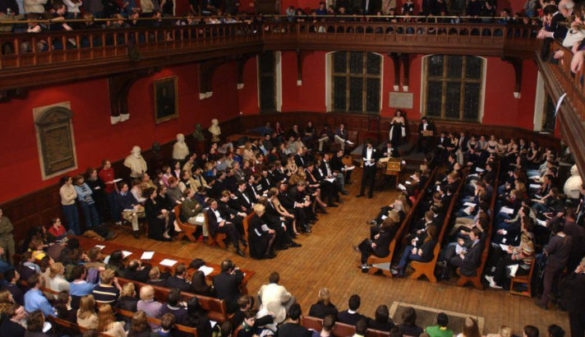
China trade links have delivered for UK, former business minister argues
Business ties built with China have kept the UK steel industry alive, created a viable British electric vehicle capacity, and even given AstraZeneca the financial might to develop its COVID-19 vaccine, according to former UK business secretary Vince Cable.
Cable cited the rescue of British Steel by the Jingye Group; investments in plants from battery-maker Envision; the profits generated in China by Jaguar Land Rover and AstraZeneca and revenues brought to universities as vindication of the policy of engagement pursued while he was in government.
More recently, under Boris Johnson, relations with Beijing have deteriorated, with both sides accusing each other of unacceptable practices.
Taking two issues that the government in London has raised on numerous occasions, Cable said that the Chinese authorities had made it clear that they would not countenance interference regarding their internal policies in Xinjiang, and had received support from a wide range of countries. Making Xinjiang the starting point of relations would be like refusing to open talks with the U.S. unless they repealed the article in their constitution allowing citizens to carry guns, he stated.
On Hong Kong, he said Beijing had been consistent in its position and recent developments had been triggered a reaction to impose security and stability.
“Those people in Hong Kong who, in the name of democracy and free speech, started throwing Molotov cocktails at the police and vandalizing their legislature did their little bit to kill Hong Kong democracy because it was very clear what the rules of the game were and the Chinese were not in any way dishonest or unclear about what was permissible,” he said.
Global primacy
Cable was speaking at a debate at the Oxford Union Society last month. The 190-year-old institution meet weekly during Oxford University’s term time to host a debate in which world experts argue passionately about their conflicting beliefs. On the other side of the chamber was Michael Pillsbury, an advisor to the U.S. government under Donald Trump. Pillsbury argued that the rise of China posed a threat in particular to America, accusing the country of ignoring intellectual property rules and violating the rights of its own citizens in a quest to become the preeminent world power.
“This is a highly dangerous thing for everybody else but for Americans in particular – giving up our global primacy – a lot of Americans simply won’t do it. We’d fight rather than do it,” Pillsbury told the audience.
He argued that using a limited range of measures to put pressure on China would help shift perceptions in Beijing to change their practices. Joe Biden had followed many of the same policies as Donald Trump in this regard, he noted.
But while Pillsbury accused China of trying to infiltrate international organizations to support their own agenda, Cable claimed the opposite was true.
“The person who put the boot into the rules-based system, the World Trade Organization, wasn’t the Chinese. It was President Trump who tried to cut it off at the knees.”
Cable called for engagement based on mutual respect.
“That principle of dealing with China – engaging with China but recognizing the reality that they have a different system and they’re not going to countenance interference with their internal politics – that has to be out of sheer realism the way we deal with them,” Cable said.
Source: https://newseu.cgtn.com/news/2022-02-11/China-trade-links-have-delivered-for-UK-says-former-business-minister-17xVbMIRlU4/index.html